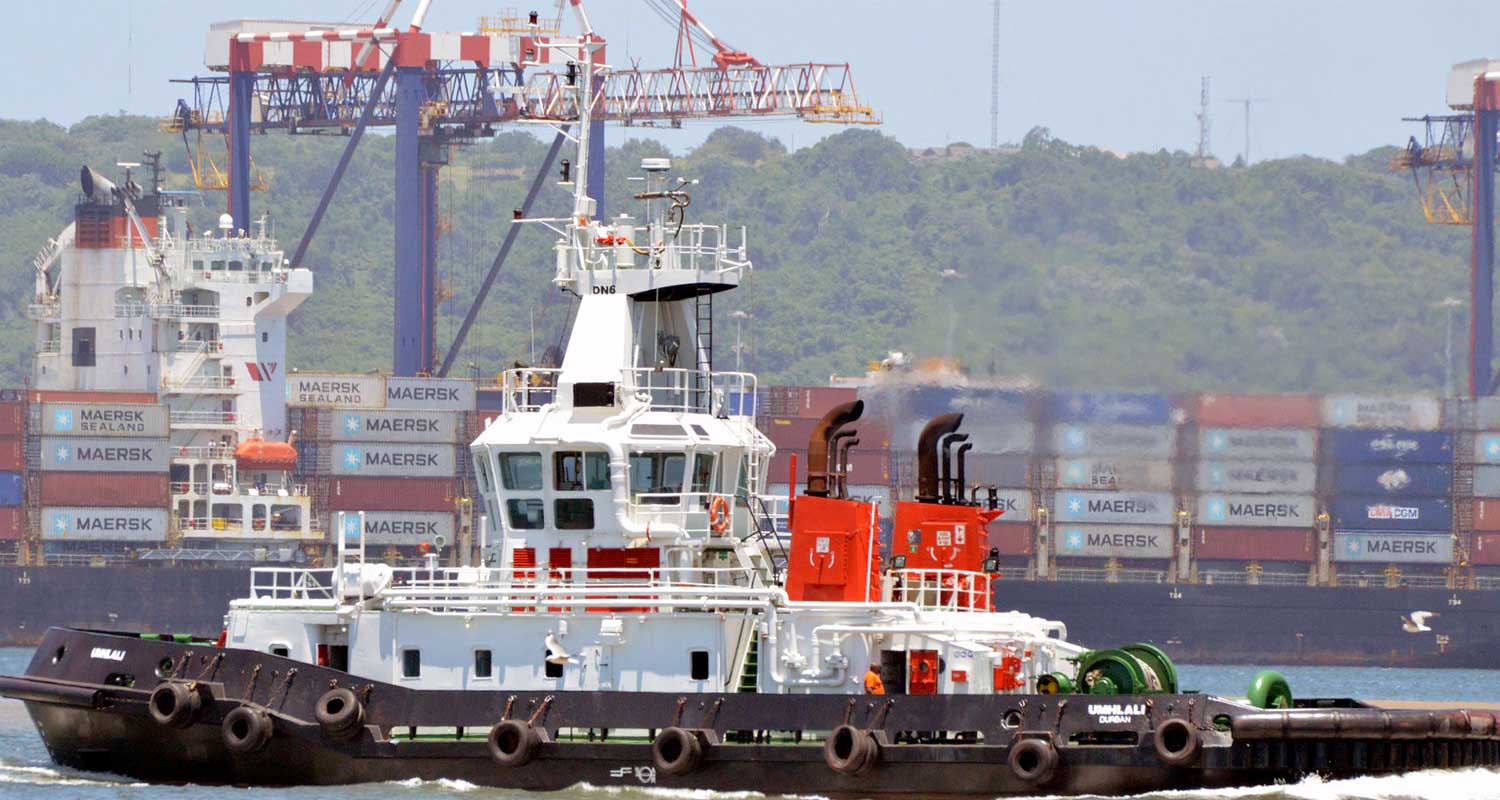 In the bustling economic landscape of Durban and the broader KwaZulu-Natal (KZN) region, manufacturers face an evolving array of challenges. From logistical hurdles at the port of Durban to energy shortages, the local industry’s agility and innovative capabilities are being tested.
In the bustling economic landscape of Durban and the broader KwaZulu-Natal (KZN) region, manufacturers face an evolving array of challenges. From logistical hurdles at the port of Durban to energy shortages, the local industry’s agility and innovative capabilities are being tested.
A recent manufacturing roundtable, hosted by TechCentral and sponsored by Sage, brought these issues into sharp focus, exploring how resilience, technological integration and strategic systems implementation can drive growth amid these adversities.
Attendees agreed that, as KZN manufacturers navigate these turbulent times, the strategic deployment of technology and integrated systems like ERP will be pivotal in ensuring not only survival, but also thriving in a competitive, rapidly evolving market.
Evolving challenges
Attendees shared that manufacturers in KZN are increasingly grappling with complex issues that impact their operational efficiency and cost structures.
Supply-chain disruptions remain a critical concern, exacerbated by inefficiencies at the Durban port and subsequent challenges with freight-forwarding, including rail and trucking. The ripple effects of these logistical challenges are profound, affecting delivery timelines and inflating costs.
The region’s manufacturing sector also contends with a high level of unionisation, which, while crucial for protecting worker rights, can complicate operational changes and technological upgrades. Negotiations and agreements with unions must be handled with care to maintain labour harmony and productivity.
Additionally, there is the challenge of infrastructure sabotage – deliberate damage to equipment or systems can cause severe disruptions to manufacturing processes as well as raising safety concerns.
The skilled workforce shortage is another significant hurdle. As technologies advance, the gap between the skills available and those required by modern manufacturing widens, posing a threat to growth and innovation. Furthermore, energy constraints – characterised by erratic power supply and rising costs – compromise production capacity and operational sustainability. Moreover, stringent environmental regulations compel manufacturers to invest in cleaner, more sustainable processes, adding financial and operational burdens.
In response to these challenges, manufacturers in KZN are adopting a variety of innovative solutions.
Skills gap
To address delays at the port, some have shifted to air freight for critical imports, despite the higher costs, to ensure timely delivery of essential components. Advanced inventory management systems are also being deployed to optimise stock levels, reduce holding costs and improve cash flows.
To bridge the skills gap, comprehensive training programmes are being rolled out to enhance workforce proficiency in new technologies. Furthermore, manufacturers are investing in renewable energy sources like solar power to mitigate energy unreliability and reduce carbon emissions while also exploring investments in cleaner production technologies to support recycling and the shift towards a circular economy. Additionally, in response to sabotage incidents, enhanced security measures are being implemented to protect assets and ensure operational continuity.
Strategic role of ERP
Advanced ERP systems are increasingly recognised as foundational for navigating the challenges of modern manufacturing. For KZN manufacturers, ERP systems offer extensive benefits by integrating various business processes into a unified system, providing real-time data across operations. This integration is crucial for managing complex supply chains, optimising resource allocations and complying with environmental regulations.
ERP systems help manufacturers in Durban and the wider KZN area enhance decision making, increase responsiveness to market changes, and improve financial oversight. Customisation of these systems allows for addressing specific local challenges, such as load shedding, labour management and compliance tracking, thus supporting more sustainable and efficient operations.
 Empowering transformation
Empowering transformation
In the challenging landscape of manufacturing technology adoption, overcoming both technical and cultural resistance within organisations is crucial. Employees often fear the implications of automation, such as job displacement, or feel overwhelmed by the complexities of new systems, leading to resistance that can manifest as sabotage or passive non-compliance.
To counter these challenges, attendees highlighted the critical role of technology partners in facilitating acceptance and integration through strategic engagement and clear communication. Demonstrating the personal and organisational benefits of new technologies, such as reducing physical strain and creating opportunities for more value-added work, can help shift employee perceptions and foster a culture more receptive to change.
Effective change management is integral to successfully integrating new systems within manufacturing operations. Technology partners can provide invaluable support through onsite presence, ensuring smoother transitions by addressing issues in real time and adjusting systems to better meet the specific needs of a manufacturing environment.
This direct involvement builds workforce confidence as employees see the commitment to making technology work effectively for their specific context.
Additionally, the introduction of new technologies necessitates significant upskilling of the workforce. Technology partners are crucial in this aspect as well, offering training programmes tailored to various levels of technical proficiency, which ensures that all employees are competent and confident in using new systems.
Furthermore, adopting a personal approach to technology implementation enhances accountability and ownership within organisations. Technology partners that engage deeply with individual users and teams through regular feedback loops and personalised training foster an environment where technology is not merely installed but is fully integrated into daily operations.
Sustainability and the circular economy
The sustainability imperative is driving manufacturers to rethink their processes, emphasising the circular economy model, which prioritises the re-use and recycling of materials. It was evident from the discussion that this shift towards sustainability is particularly pronounced among manufacturers with global footprints or those that are part of multinational corporations. These entities face stringent environmental and sustainability regulations across various international markets, compelling them to integrate sustainable practices not only as a corporate responsibility but also as a strategic business necessity.
In contrast, manufacturers operating primarily within South Africa encounter a different regulatory landscape. Although local environmental regulations exist, they are often less stringent and less strictly enforced. This discrepancy can result in varying degrees of urgency and approaches to sustainability initiatives among local manufacturers versus their multinational counterparts.
Despite the comparative lack of stringent local regulations, forward-thinking manufacturers in KZN are beginning to recognise the long-term benefits of adopting sustainable practices. These include reduced operational costs through efficient resource use, enhanced brand reputation, and alignment with global sustainability trends that might become local requirements in the future.

Consequently, more manufacturers are investing in greener technologies and systems that support the principles of the circular economy. ERP systems are crucial in this transition, providing the necessary data to track material usage, manage waste and improve overall environmental performance, which in turn supports compliance with international standards and prepares firms for potential tightening of local regulations.
For those interested in exploring this topic further and gaining deeper insights into sustainable manufacturing practices, this report (PDF) provides comprehensive analysis and examples that can guide businesses in integrating circular economy principles into their operations. Readers are encouraged to consult this report to better understand how to align their practices with global sustainability trends and prepare for future regulatory environments.
TechCentral and Sage thank all of those who participated in the roundtable discussion.
- Read more articles by Sage on TechCentral
- This promoted content was paid for by the party concerned

